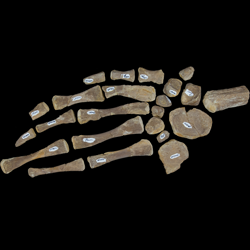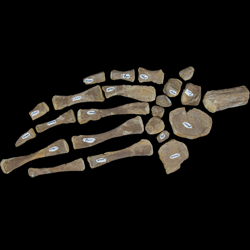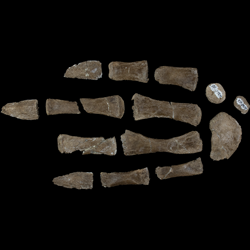
Protostegidae

- Phylum: Chordata
- Class: Sauropsida
- Order: Testudines
- Family: Protostegidae
Overview
Protostegidae Cope, 1873
Common Name: Sea turtle
Extant/Extinct
Key morphological features: Unfortunately it seems sea turtles were common prey of Late Cretaceous predators as their limbs and fragile components are often missing from their fossil skeletons. Their skulls may have been adapted to eat hard-shelled molluscs such as inoceramid clams from the bottom of the sea floor. Others believe they may have actively hunted ammonites.
SIZE: Up to 4.9 meters long (12.83ft), 2.44 meters (8ft) is the approximate size of modern leatherback turtles
Paleoecology:
MOBILITY: Mobile (swim)
FEEDING MODE: Predator
HABITAT: epifaunal
Sources:
Everhart, M. J., 2005. Oceans of Kansas: A Natural History of the Western Interior Sea. Indiana University Press, Bloomington. 322 pp.

